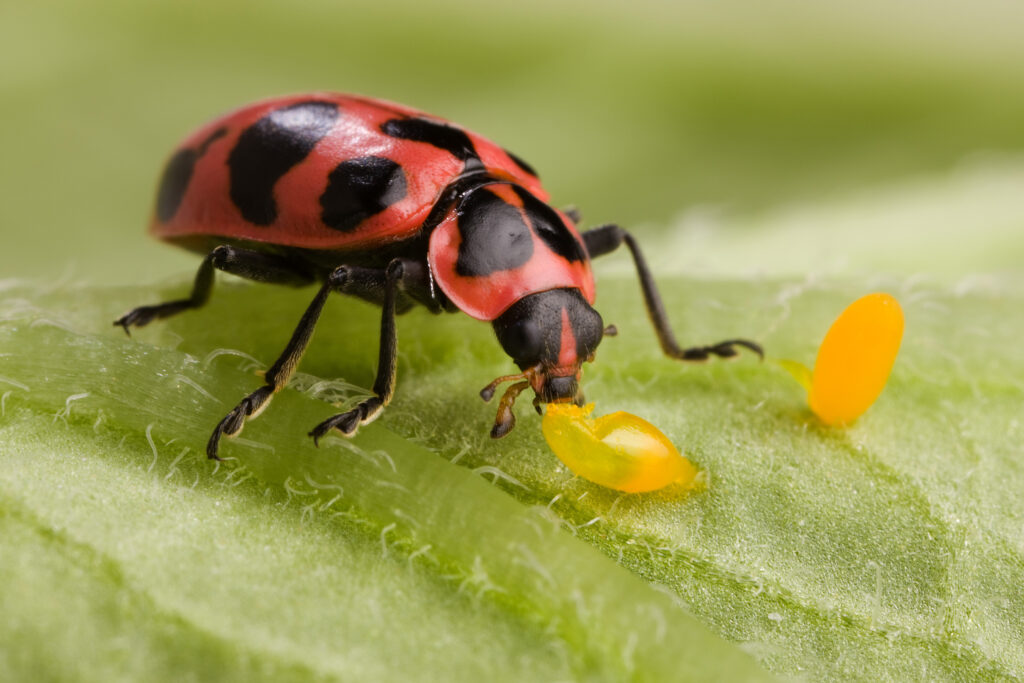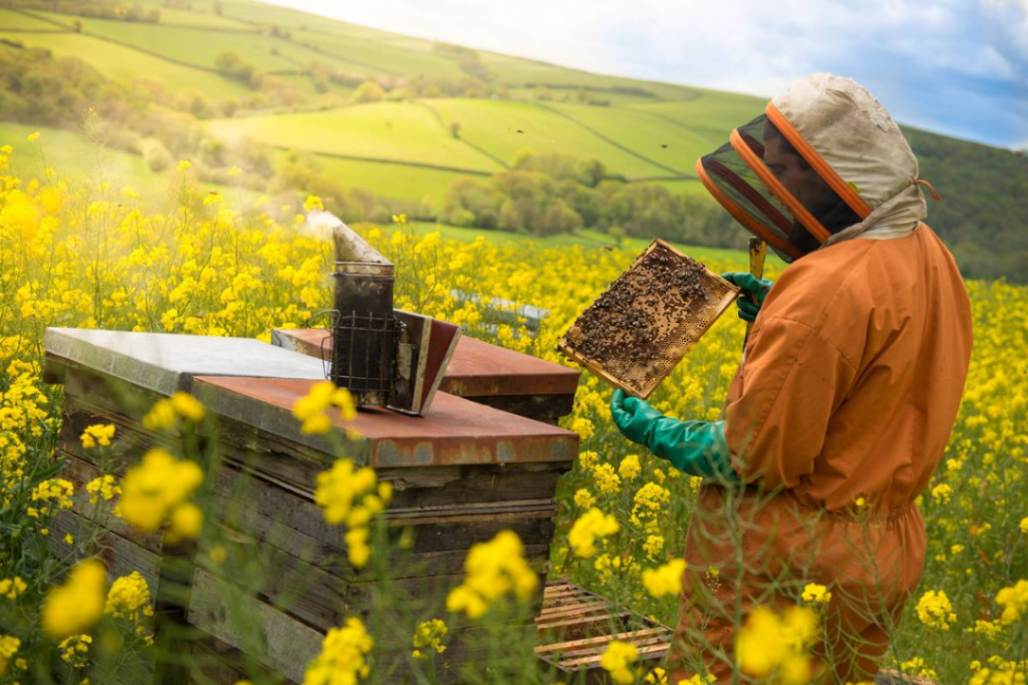Introduction:-
Biopesticides are living organisms that can be utilized in organic farming to control pests, weeds, and nematodes. They can be used in place of chemical fertilizers and pesticides to boost soil fertility and prevent diseases. They constitute parasites, predators, fungi, bacteria, and viruses that are natural enemies of pests. They provide a sustainable alternative to traditional synthetic pesticides for solving pest issues while limiting harm to beneficial creatures, human beings, and the environment. This distinction is crucial in organic farming, where synthetic chemicals are strictly prohibited.
One of the main advantages of introducing Biopesticides into Organic Farming is they are more environment-friendly and do not harm the soil, water supply, or wildlife. The amount of synthetic chemicals utilized is reduced because biopesticides are usually used in rotation with traditional products, not in replacement of them.
Sachin Palkar specializes in helping people understand and utilize biopesticides effectively. He simplifies complex concepts, making it easy for individuals to adopt eco-friendly practices that enhance crop health and protect the environment. Trust SapAgro to guide you through the benefits and best practices of biopesticides, ensuring a fruitful and environmentally friendly farming journey.
There are 3 Types of Biopesticides:
1. Microbial Biopesticides: Includes bacteria, fungi, viruses, and protozoa that target specific pests or pathogens.
2. Botanical Biopesticides: Derived from plants or plant extracts with insecticidal or repellent properties.
3. Biochemical Biopesticides: Comprise naturally occurring substances such as pheromones and enzymes that disrupt pest behavior or physiology.
In the realm of organic farming, where sustainability and environmental consciousness are paramount, the use of biopesticides emerges as a beacon of hope. Unlike conventional chemical pesticides that often pose risks to both human health and the environment, biopesticides offer a safer and more eco-friendly alternative. Let’s delve into the world of biopesticides and explore their numerous benefits to organic farming.

Advantages of Biopesticides:-
1. Environmental Safety: Biopesticides are inherently less toxic than their chemical counterparts, reducing the risk of harm to non-target organisms, soil, water, and air. They have a minimal impact on biodiversity, promoting ecological balance within agricultural ecosystems.
2. Residue-Free Produce: Since biopesticides are derived from natural sources, they tend to break down more rapidly, leaving little to no residue on crops. This ensures that organic produce remains pure and free from synthetic chemical contaminants.
3. Resistance Management: Overreliance on chemical pesticides has led to the emergence of pesticide-resistant pests, posing significant challenges to conventional farming. Biopesticides offer a sustainable solution by employing multiple modes of action, making it harder for pests to develop resistance.
4. Supporting Beneficial Organisms: Unlike chemical pesticides, which often indiscriminately target both harmful and beneficial organisms, biopesticides are more selective. They help preserve populations of beneficial insects, such as pollinators and natural predators, which contribute to ecosystem resilience.
5. Compliance with Organic Standards: For organic farmers striving to meet stringent certification requirements, the use of biopesticides aligns perfectly with organic farming principles. It allows farmers to maintain organic status while effectively managing pest and disease pressures.
6. Minimal Risk to Human Health: By minimizing exposure to harmful chemicals, biopesticides help protect the health and safety of farmers, farmworkers, and consumers. This is particularly important in organic farming, where promoting human well-being is a core value.
Disadvantages of Biopesticides:-
- Biopesticides have a short shelf life.
- They are only available at some places and times.
- The effectiveness of biopesticides may not always match the effectiveness of artificial pesticides made from chemicals.
- They often have to be applied precisely, and they could be less effective in some environments or with higher pest pressure.
- They only control a limited range of pests as they are only effective against target species.
- They can be difficult to apply and confusing to the farmers.
- Variations in formulation, application methods, and environmental variables can all affect the way biopesticides work.
Usage of Biopesticides in India:-
In India, the usage of biopesticides as a major crop protection tool has increased significantly during the last 10 years. Some of the examples of Biocontrol agents used in India are:-
- Telonemia scrupulous: It is a bug that has been utilized to control lantana weed’s explosive growth in the fields.
- Trichogramma: They are organisms that are utilized in various states, namely Tamil Nadu, Rajasthan, Uttar Pradesh, Bihar, and Haryana, to combat sugarcane borers by feeding on their eggs. Trichogramma has also been used to fight lead folders and rice stem borers.
- Coccinellids: They are predators. Due to their aggressive nature, these specific beetle species are employed for fighting sugarcane scale insects. In significant states like the U.P., West Bengal, Gujarat, and Karnataka, this has reduced the loss of sugarcane production.
India has been observed to use biopesticides frequently. These biocontrol agents improved the efficiency of these biopesticides when combined with modern technology and systematic study.
Application of Biopesticides:-
Integrated Pest Management (IPM): Include biopesticides in an integrated pest management (IPM) strategy that combines mechanical, biological, and cultural control techniques.
Timing and Dosage: To have the most effectiveness, apply biopesticides either as a preventative measure or in the early stages of pest infestation. For maximum control and the least negative effects on the environment, follow the suggested dosage rates and application intervals.
Compatibility with Beneficial Organisms: Examine the suitability of biopesticides with bees, beneficial insects, and pest’s natural opponents. To support biological control and ecological balance, select items that present the least amount of risk to non-target organisms.
Rational Use: Switch between various biopesticides with unique mechanisms of action to stop target pests from becoming immune. Multiple approaches to pest management improve sustainability and efficiency over the long run.
Proper Handling and Storage:- To ensure the continued efficiency of the product, store biopesticides by manufacturer guidelines, making sure the right temperature, humidity, and ventilation are met. Use caution when handling biopesticides to reduce exposure and avoid contaminating nearby areas and equipment.
Conclusion:-
Biopesticides are a useful tool for organic farmers like Sapagro in their battle for sustainable agriculture, as they provide efficient pest control solutions while protecting human health and the environment. Organic farmers may support healthy ecosystems, produce superior crops, and make a positive impact on future generation’s health by acknowledging the advantages of biopesticides and utilizing best practices in their application.






